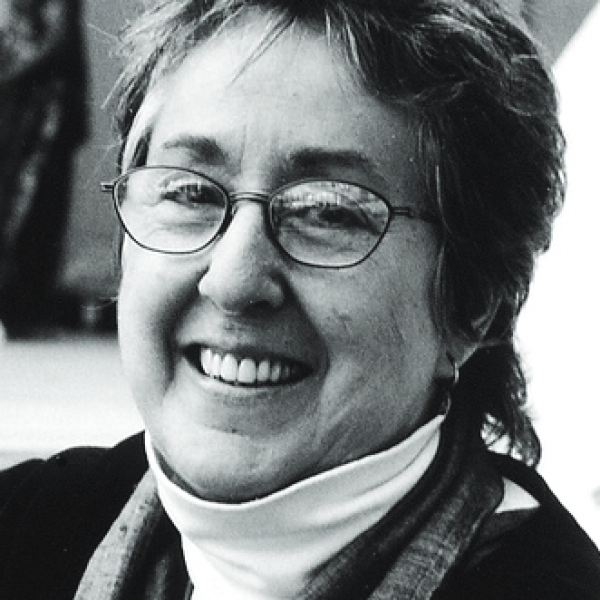Ethel Raim

Photo by Martha Cooper
Bio
As the 1968 Newport Folk Festival ended, Ethel Raim asked Festival Director Ralph Rinzler why none of the performers had accents like the European immigrants remembered from her childhood in the Bronx. Up until then, the American folk music revival drew from a much narrower spectrum of American cultures, overlooking the immigrant heritages of tens of millions of Americans. Rinzler was persuaded by the impassioned Raim, and the next year immigrant performers documented by Raim appeared at the Newport Folk Festival. Soon after, they also became a major feature of the Smithsonian Festival of American Folklife (now the Smithsonian Folklife Festival) which Rinzler founded. In the half century since, she has been a national leader in revitalizing diverse ethnic traditions and awakening Americans to a broader appreciation of our traditional music and dance heritage. With co-director Martin Koenig of the Slavic and Balkan Cultures Program at the Smithsonian Festival of American Folklife and New York City's Balkan Arts Center (now known as the Center for Traditional Music and Dance), she pioneered approaches for presenting traditional artists in familiar settings like cafes, beer gardens, and dance halls.
Through Raim’s leadership as executive director, the Center for Traditional Music and Dance (CTMD) carried out field research and programming about a remarkable variety of ethnic traditions, including those of Americans of Caribbean, South American, African, Balkan, Irish, Slavic, Jewish, Latin American, Mediterranean, and Asian heritage. Extending its work beyond research, recordings, films, archiving, and concert programming, Raim created the Community Cultural Initiatives (CCIs). These programs collaborate with a number of ethnic communities to develop infrastructure necessary to sustain the traditions of community partners on their own terms. The outcomes of CCIs include the creation of a number of self-sustaining cultural organizations, including, among others, Mano a Mano: Mexican Culture Without Borders, Mariachi Academy of New York, and establishment of the annual Festival Shqiptar within New York’s Albanian community. Like all of Raim's work, the CCIs foster folk arts as living traditions whose artists are adapting their art forms to new social conditions, innovating while maintaining a traditional core.
A tireless advocate for cultural equity, Raim was a driving force in creating the Folk Arts Program of the New York State Council on the Arts, which now supports more than 70 cultural organizations throughout the state to document, present, and sustain their traditions. Her passion for the folk and traditional arts is also embodied in her own artistic life as a leading singer of Yiddish folk songs. She teaches apprentices and continues to actively perform. Raim is a living treasure whose productions also live beyond planet earth—Bulgarian performers recorded by Koenig and Raim are among 27 musical selections placed on the Voyager Space Craft to represent the music of humankind.
By Robert Baron, Program Director, Folk Arts Program and Music Program, New York State Council on the Arts

